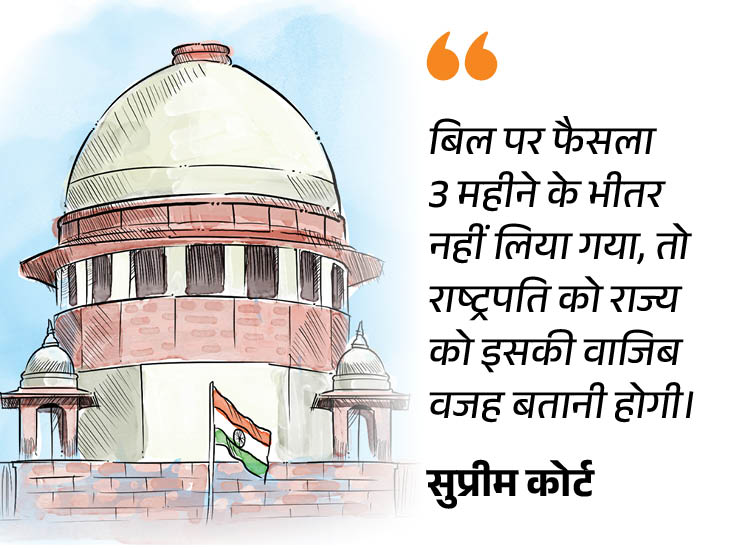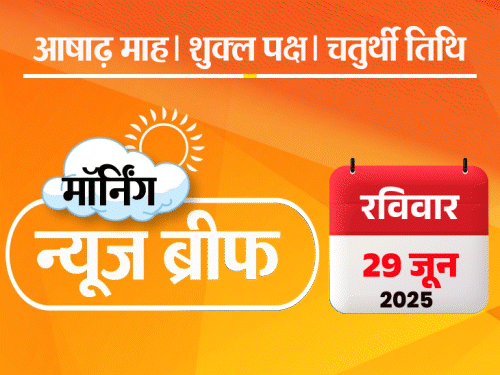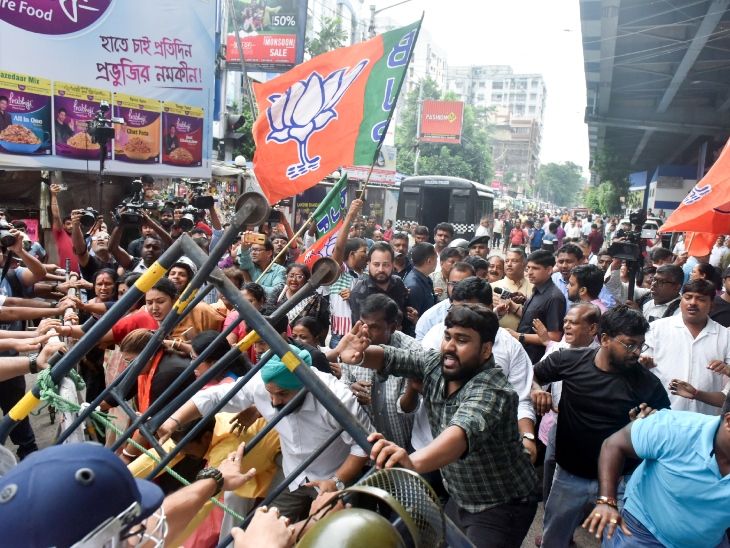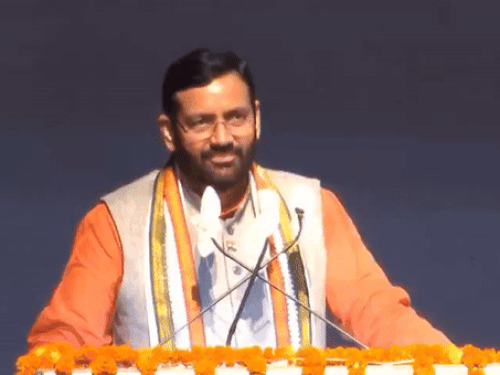New Delhi6 minutes ago
- Copy link

On 8 April, the Supreme Court had fixed the ‘limit’ of the Governor’s authority over the Tamil Nadu Governor and the State Government’s case.
In the first decision of its kind, the Supreme Court has also set a deadline for the President of the country. The Supreme Court said that the President will have to take a decision on the bill sent by the Governor within 3 months.
In fact, On 8 April, the Supreme Court took a historic decision in the case of the Tamil Nadu government and the Governor. The court had said that the Governor would have to take a decision on the bill sent by the Legislative Assembly within a month. During this decision, the court also clarified the situation on the bill sent by the Governors to the President. The order was made public on 11 April.
In the order uploaded on the website on Friday night, the Supreme Court cited Article 201 of the Constitution. The Supreme Court said-

The President does not have the right to complete veto or pocket veto in the case of bill sent by the governors. Their decision can be judged and the judiciary will decide the constitutionality of the judiciary bill.

Supreme Court, 4 points on the bill sent by the Governor to the President
1. Decision has to be taken: The Supreme Court said that Article 201 says that when the assembly passes a bill. He should be sent to the Governor and the governor should send him to the President for consideration. In this situation, the President will have to approve the bill or tell that they are not giving approval.
2. Judicial Review: The Supreme Court said that the decision of the President under Article 201 can be judged. If the decision of the central government is given priority in the bill, the court will review the bill on the basis of arbitrariness or malicious.
The court said that the state’s cabinet has been given priority in the bill and if the Governor has decided contrary to the assistance and advice of the Council of Ministers, the court will have the right to legally investigate the bill.
3. The state has to give reasons: The Supreme Court clarified that when a time-limit is fixed, a decision should be taken within a reasonable time line. It will be mandatory for the President to take a decision within 3 months of receiving the bill. If there is a delay, the reasons for the delay have to be mentioned.
4. Bills cannot be sent back again and again: The court said that the President sends a bill back to the state assembly for amendment or reconsideration. If the assembly passes it again, the President will have to take the final decision on that bill and stop the process of returning the bill again and again.
Governors had set a time limit for also, said- no veto power
On 8 April, the Supreme Court had fixed the ‘limit’ of the Governor’s authority over the Tamil Nadu Governor and the State Government’s case. A bench of Justice JB Pardiwala and Justice R. Mahadevan had said, “The Governor has no veto power.”
The Supreme Court also termed the government’s 10 essential bills being stopped by the Governor as illegal. The court said that this is an arbitrary step and is not correct from the perspective of law. The Governor should have given help and advice to the state assembly. The court had said that the Governor should take steps on the bill near the assembly within a month.

The photo is on 18 November 2023. When CM MK Stalin passed 10 bills in a special session of the assembly.
The Supreme Court had a hearing on the petition filed by the Tamil Nadu government. It was said that Governor RN Ravi has stopped the necessary bills of the state. Explain that former IPS officer RN Ravi, who has worked in the Central Bureau of Investigation (CBI), took over as the Governor of Tamil Nadu in 2021.
,
Read this news too …
Supreme Court strict on stopping 10 bills of Tamil Nadu: Illegal about the decision of the Governor, said- You should walk through the constitution, not with the will of the parties

The Supreme Court on Tuesday (April 8) set a ‘border’ of the rights of governors in a historic judgment. A bench of Justice JB Pardiwala and Justice R. Mahadevan, while giving a verdict in the case of Tamil Nadu, said, “The Governor has no veto power.” Read full news …




